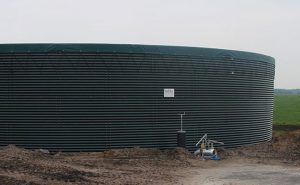How Contract Farming Agreements Provide the Answer to an Ageing Farming Industry

As they recently announced, the UK government plans to encourage older farmers to retire in order to make room for younger farmers. One part of a larger scheme to overhaul grants given to the farming community, the broader plan aims to make UK farming a more sustainable and greener venture.
The reasoning behind encouraging older farmers to retire is based on the assumption that older farmers are much more likely to be resistant to “green” methods, according to Environment Secretary, George Eustice.
The current system, the same one used in the EU, provides grants mainly on the basis of how much land is owned by a farmer – something Eustice is keen to change. Believing it encourages farmers to “coast” and “take no risks”, the Environment Secretary is eager to bring in new farmers under the new system. Something which has been met with both positive and negative responses from the wider farming community.
Offering up to £100,000 to older farmers, the one-off lump sum payments are hoped to be an incentive, but when speaking to the BBC, George Dunn, chief executive of The Tenant Farmers’ Association, believes that the money alone won’t be enough to motivate farmers, even less so for large commercial farms.
An Increasing Age Gap in the Farming Community
The issue, however, is more complex than simply swapping out old farmers for new ones. For many, farming is a way of life, not a career, with many living at their places of work, building their entire identity around their vocation. For some, where farming has been a generational tradition for decades, the emotional ties to the farm and the way of life may be invaluable. For the most part, there is sympathy among young farmers for the decisions the older generation faces.
That said, the average age of farmers in the UK is 59, with four in ten over the age of 65. The sheer number of greying farmers has stoked fears that the younger generation is struggling to make a start as farmers. The reality is, there’s limited space, and without a regular turnaround, it’s harder for people who are new to the industry to gain a foothold. Similarly, young farmers who do have land and are looking to expand, often find themselves penned in by estates held by older generations that don’t want to sell.
Not all of the older farmers feel the same way, with some keen to pass on the mantle to their children and recognise the importance of introducing a new dynamic to the family business. This incentive to hang up their wellington boots may be just the boost they need to encourage their sons and daughters to take ownership of the family farm fully.
Considering a Contract Farming Agreement
Besides making farming sustainable and environmentally friendly, the hopes behind the UK’s farming reforms lie in making food more straightforward and more efficient to produce. One of the ways an older farm can rejuvenate the land and introduce new ideas is through a contract farming agreement.
We’ve discussed the benefits of contract farming before, but in essence, the contract is set up between a farmer or landowner, and a private contractor (often local farmers themselves).The farming agreement allows the contractor to work the land and deal with the landowner’s property’s day-to-day operations.
Older generations who may be struggling to keep up with the pace that farming requires can benefit from letting another farmer work their land, helping them grow their business without selling off assets or property.
For younger generations, it offers an alternative way to upscale or grow their business without having to find a way to secure or purchase land for a farm of their own. By working together, both generations can benefit from shared knowledge and the profits that come from a cooperative approach.





